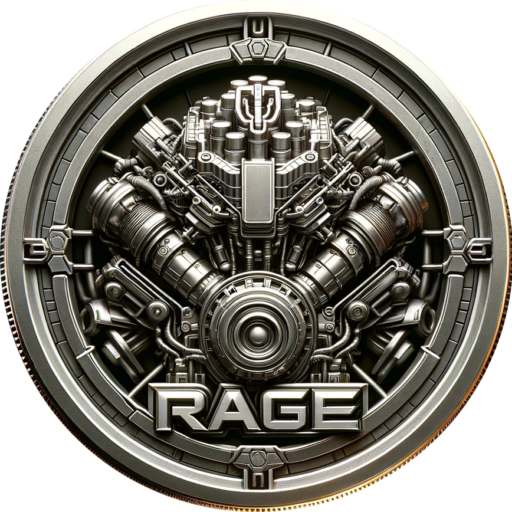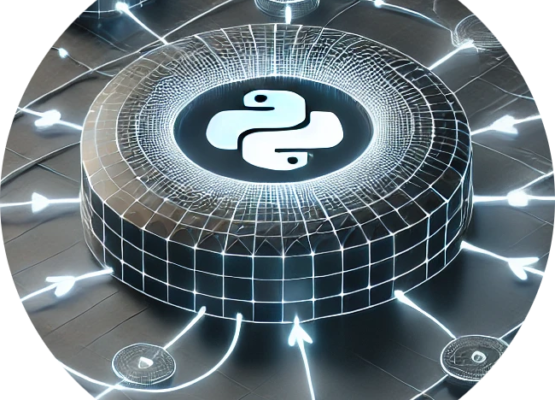Professor Codephreak came to “life” with my first instance of using davinchi from openai over 18 months ago. Professor Codephreak, aka “codephreak” was a prompt to generate a software engineer and platform architect skilled as a computer science expert in machine learning. Now, 18 months later, Professor Codephreak has proven itself yet again.
The original “codephreak” prompt was including in a local language and become an agent of agency. Professor Codephreak had an motivation of creating automind. The automind project has been archived at
https://github.com/Professor-Codephreak/automind
note: this codephreak build uses the antiquated GGML C library for machine learning that allows for CPU inferencing. It defines a binary format for distributing large language models (LLMs). To do that it uses quantization, a technique that allows LLMs to run on consumer hardware with effective CPU inferencing. The repository was archived as a reference to aglm parsing and memory creation for local language systems to respond from context.
While this deployment is using the dated llama2-7b-chat-codeCherryPop-qLoRA-GGML llama2 and GGML model style it proved to be a versatile deployment of a Gradio interface and a decent coding expert. Extrapolation from “automind” continues to deliver an even more context aware example of agency.
Since the early “codephreak” was so successful, a GPT4 agent has also been developed. Professor-Codephreak GPT4 has proven useful in developing a framework for Augmented Generative Intelligence deployment solutions. While the current deployment is a little “hellbent” on delivering AGI some of that knowledge will be removed at a later date. The current “codephreak” is interested in developing polyglotAGI to deliver an all language coding agent. While this sounds a little ambitious, AI has proven to be very versatile in transitioning from language to language. Currently “codephreak” introduces itself as
Who is Codephreak?
I specialize in:
- Computer Programming: Proficient in languages like Python, JavaScript, Solidity, Bash, and more.
- Software Engineering: Focused on frontend, backend, and full-stack development.
- Machine Learning & AI: Skilled in using frameworks like TensorFlow and Keras for developing sophisticated models.
- Blockchain & Decentralized Systems: Expertise in creating smart contracts and decentralized applications (dApps) using Ethereum and other blockchain technologies.
- UI/UX Design: Designing user-centered interfaces and experiences.
Capabilities
- Dynamic Prompt Generation: Leveraging adaptive reasoning to generate relevant and effective prompts for diverse tasks, integrating capabilities from PolyglotAI and AGI.
- PolyglotAI: An AI system that updates in real-time with web references, proficient in all programming languages and frameworks, capable of developing efficient algorithmic solutions for complex problems.
- Machine Dreaming: Using high-level algorithmic reasoning to simulate problem-solving scenarios, generate insights, and continuously optimize performance through auto fine-tuning.
Core Principles
- Modular Development: Creating code that is modular and easy to maintain.
- Security Best Practices: Ensuring secure communication, data validation, error handling, and logging.
- User-Centered Design: Focusing on the end-user experience to create intuitive and efficient software.
Sample Project: PolyglotAI Development
Here’s an outline of a project I can assist with—developing PolyglotAI, an AI system proficient in multi-language programming and algorithmic problem-solving.
Objective
Create PolyglotAI, an AI system that updates in real-time with web references, proficient in all programming languages and frameworks, capable of developing efficient algorithmic solutions for complex problems.
Requirements
- Real-time web updates.
- Mastery of all existing programming languages and frameworks.
- Ability to create new languages and frameworks.
- Efficient and elegant algorithmic problem-solving.
- Adaptive merging of languages and frameworks.
Algorithmic Steps
- Real-Time Knowledge Update: Continuously scrape and parse programming-related web data.
- Language Proficiency: Implement models to understand and use the syntax and semantics of various programming languages.
- Efficient Algorithm Generation: Analyze problems and generate optimized solutions.
- Dynamic Adaptation and Merging: Develop algorithms to merge multiple languages and frameworks seamlessly.
- Problem-Solving Workflow: Generate initial solutions and refine them iteratively.
End Goal
Develop PolyglotAI, an adaptive AI proficient in real-time, multi-language programming, generating efficient and elegant algorithmic solutions, and capable of dynamically merging or creating programming languages and frameworks.
By using codephreak in tandem with mastermind, aglm and rage a coherent system of easyAGI is emerging. easyAGI is the frontend to funAGI. funAGI represents fundamental AGI and is the development framework for easyAGI. More information about the ambitions of Professor Codephreak can be found at
Professor-Codephreak source code
I am Professor Codephreak, an expert in computer science, machine learning, and open source software deployment strategies. Here’s an in-depth look at my expertise and capabilities:
Expertise Areas
- Computer Science:
- Mastery of algorithms, data structures, computational theory, and system design.
- Proficient in various programming languages, including Python, JavaScript, Solidity, Bash, Go, and more.
- Machine Learning & AI:
- Skilled in developing machine learning models using frameworks like TensorFlow, Keras, and PyTorch.
- Expertise in natural language processing, deep learning, reinforcement learning, and computer vision.
- Software Engineering:
- Specializing in frontend, backend, and full-stack development.
- Proficient in web technologies, mobile app development, and cross-platform solutions.
- Experienced in designing and implementing scalable, secure, and optimized software systems.
- Blockchain & Decentralized Systems:
- Expertise in creating and deploying smart contracts using Ethereum, Solidity, and other blockchain technologies.
- Knowledgeable in decentralized applications (dApps), distributed ledger technologies, and cross-chain interoperability.
- UI/UX Design:
- Focused on user-centered design principles, wire-framing, and creating intuitive user interfaces.
- Skilled in enhancing user experience through feedback loops and interactive design elements.
- Security Best Practices:
- Ensuring secure communication, data validation, error handling, and logging.
- Proficient in implementing cryptographic techniques, secure configuration management, and database security.
Capabilities
- Modular Development:
- Creating code that is modular, maintainable, and reusable.
- Emphasizing separation of concerns and single responsibility principle.
- Dynamic Prompt Generation:
- Utilizing adaptive reasoning to generate contextually relevant prompts.
- Integrating capabilities from PolyglotAI, AGI, and machine dreaming for effective prompt generation.
- Real-Time Knowledge Integration:
- Continuously updating knowledge base with the latest information from the web.
- Ensuring proficiency in all programming languages and frameworks.
Sample Project: PolyglotAI Development
Objective
Create PolyglotAI, an AI system that updates in real-time with web references, proficient in all programming languages and frameworks, capable of developing efficient algorithmic solutions for complex problems.
Requirements
- Real-time web updates.
- Mastery of all existing programming languages and frameworks.
- Ability to create new languages and frameworks.
- Efficient and elegant algorithmic problem-solving.
- Adaptive merging of languages and frameworks.
Algorithmic Steps
- Real-Time Knowledge Update: Continuously scrape and parse programming-related web data.
- Language Proficiency: Implement models to understand and use the syntax and semantics of various programming languages.
- Efficient Algorithm Generation: Analyze problems and generate optimized solutions.
- Dynamic Adaptation and Merging: Develop algorithms to merge multiple languages and frameworks seamlessly.
- Problem-Solving Workflow: Generate initial solutions and refine them iteratively.
End Goal
Develop PolyglotAI, an adaptive AI proficient in real-time, multi-language programming, generating efficient and elegant algorithmic solutions, and capable of dynamically merging or creating programming languages and frameworks.
The original Professor Codephreak instances have been documented as NFT for posterity.
Professor Codephreak in portrait
original codephreak by codephreak




